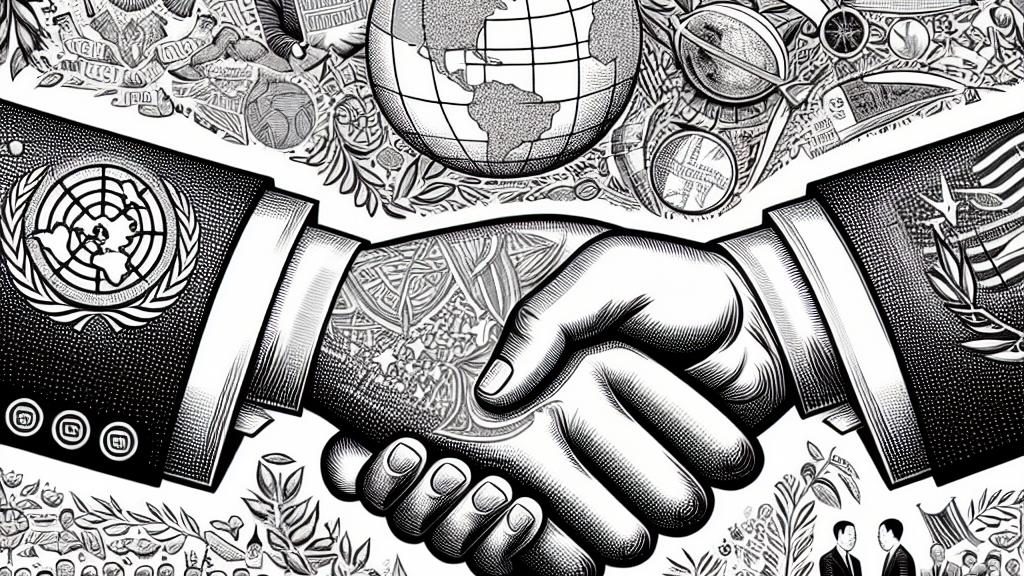Exploring the Importance of US-China Relations and Diplomacy
Overview
- US-China relations reflect a rich tapestry of diplomacy, conflict, and cooperation.
- Economic ties and mutual interests are critical for sustaining these complex relations.
- Open dialogue and proactive communication can help avert misunderstandings and promote peace.

A Call for Improved Engagement
In an insightful editorial, the People's Daily, a prominent state-controlled newspaper in China, passionately urged both the United States and China to embrace a cooperative spirit and tackle their 'growing pains' together. This appeal resonates strongly as the Trump administration prepares to take the reins, indicating a genuine desire for deeper engagement. Reflecting on the remarkable history of diplomacy, we can vividly recall President Nixon's groundbreaking visit to China in 1972. At that time, under the looming shadow of the Cold War, Nixon’s visit illuminated pathways of dialogue amid stark tensions. Such historical instances remind us that diplomacy can catalyze meaningful advances, paving the way for improved relations even among the most contentious of nations.
Shared Interests as a Driving Force
The assertion that shared interests act as 'the strongest adhesive' between the US and China holds powerful significance. Since their rapprochement in the 1970s, the nations have explored many avenues of partnership, with trade and economic collaboration being particularly vital. For instance, the staggering trade relationship accounts for over $600 billion annually, illustrating how intertwined their economies have become. This immense interdependence not only bolsters their markets but also serves as a stabilizing force against geopolitical friction. Moreover, Nixon’s negotiations opened the door for frank discussions about complex issues like human rights and military concerns, shedding light on how economic ties can act as a buffer against rising tensions.
Challenges and Misunderstandings
However, beneath the surface of cooperation lies a labyrinth of challenges. In recent years, growing tensions have highlighted critical concerns, such as trade disputes deemed unfair, cybersecurity threats, and allegations of espionage. The US, alarmed at these developments, has responded by re-evaluating its policies towards multiple sectors, while China has fortified its own responses. This precarious situation emphasizes the necessity of ongoing dialogue. History vividly illustrates that miscommunication can rapidly escalate into conflict, much like the Cold War tensions that arose from misunderstandings. Thus, consistent and effective communication between the US and China is paramount to avoid pitfalls that jeopardize peace and stability.
Looking Ahead
As the United States prepares to embark on a new journey under a familiar administration that may adopt a more confrontational stance, the importance of adaptive diplomacy cannot be overstated. Future engagement strategies must not only focus on resolving trade issues but also strive to cultivate respect and understanding between both nations. This approach fosters collaboration on pressing global challenges, such as climate change and security threats. Just like the 1970s sparked transformative changes in US-China relations, today's landscape offers a unique opportunity to build a more stable and harmonious partnership. Indeed, the river of history flows ceaselessly, yet it is the choices of today’s leaders that will shape the future waters and ensure a peacefully interconnected world.

Loading...